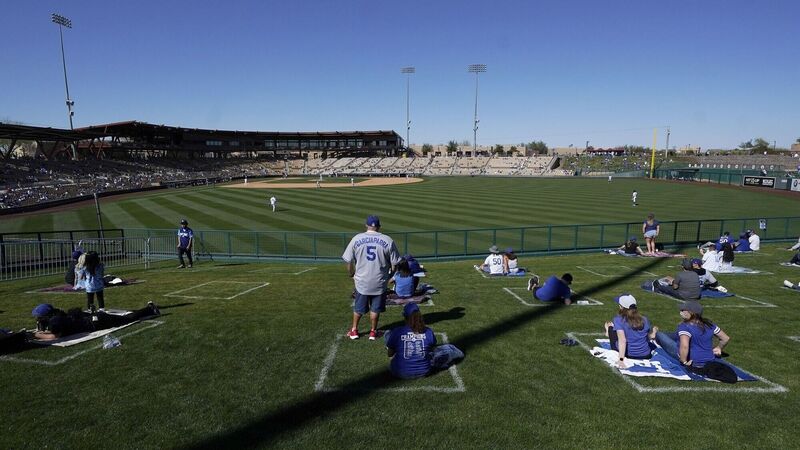Tommy Martin on baseball: The magical summer when I allowed American’s pastime inhabit my life

Los Angeles Dodgers fans occupy their socially distanced seating pods during the fifth inning of a spring training baseball game against the Colorado Rockies on March 1, 2021, in Phoenix. (AP Photo/Ross D. Franklin)
The Major League Baseball season starts today and America will feel closer to normal.









